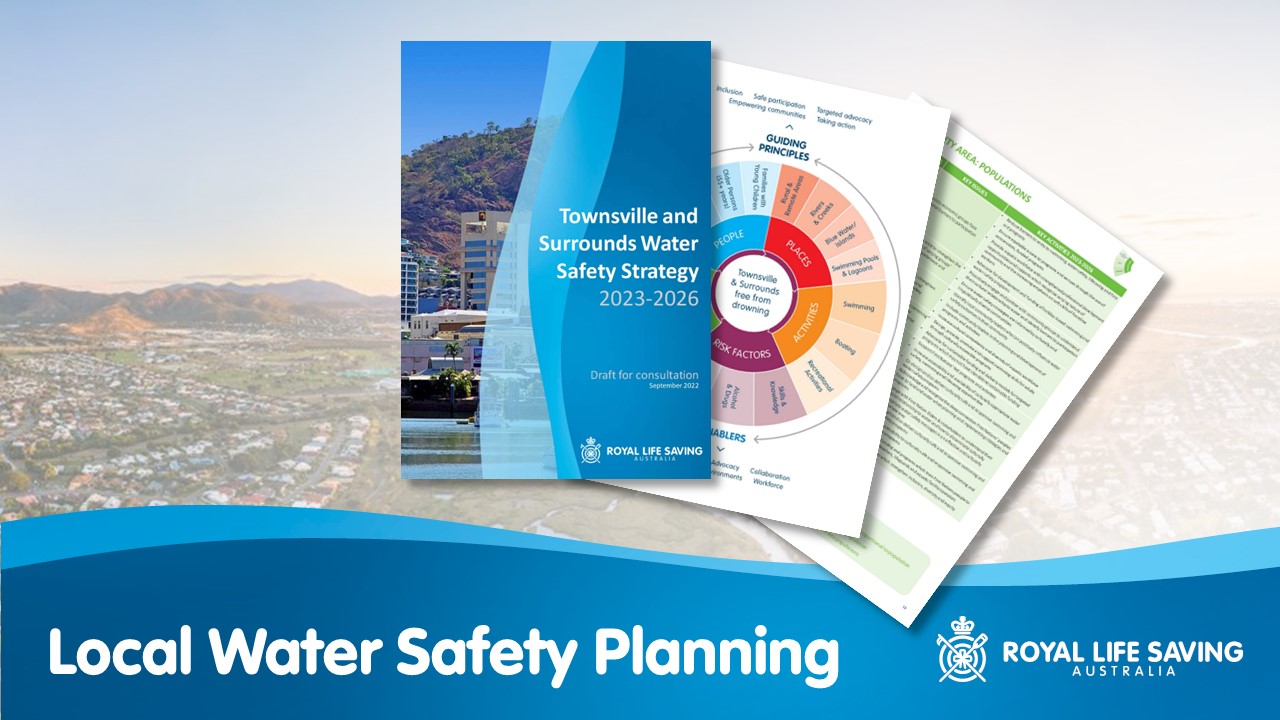
Developing a Local Water Safety Plan
Overview
One of the key themes identified in the Australian Water Safety Strategy 2030 is for every community to development a Local Water Safety Plan.
A Local Water Safety Plan outlines existing and future community-based drowning prevention actions tailored to individual community contexts. The approach emphasises the role of evidence-based solutions, multi-sectoral collaboration and the capabilities and needs of varying stakeholders, including community and government organisations and vulnerable groups.
Royal Life Saving can assist with developing a local plan tailored to your region, community or organisation.
Plan development options:
- Developing a local drowning profile inclusive of key data and locations
- Facilitating community consultation through surveys, local workshops and forums
- Conducting a community-level detailed assessment and profile of drowning prevention infrastucture, programs, policy and campaigns with expert recommendations
- Conducting individual assessments or key aquatic recreation locations including inland waterways to ensure risk management practices are in line with industry standards and legislation
- Bringing together key ecosystem players such as emergency services, water safety organisations, the aquatic industry, government agencies and recreational groups
- Conducting research into local drowning issues and risk factors
- Facilitating multi-agency or community strategy setting workshops and forums to establish common understandings of issues and ways of solving them
- Drafting, iterating and publishing a professionally designed Royal Life Saving Water Safety Strategy for your region / town
Plan development benefits:
- Prevent future drownings and save lives
- Take leadership on an important social, health and economic issue
- Reduce the negative social, health and economic impacts of drowning in your community
- Gain local data and research into drowning issues and risk factors
- Understand and profile drowning issues and risk factors
- Facilitate a common understanding of local drowning and water safety issues specific to the region
- Develop stronger ties to community groups and like-minded agencies
- Spotlight key research and data relevant to the area to interested parties and those with a responsibility for water safety
- Support a commitment to working together on a collective strategy for the region
- Work towards evidence-based solutions/actions that could be collated into a local water safety drowning prevention plan
- Demonstrate positive actions on drowning prevention in line with international and national frameworks
- Gain independent and expert information and advice
- Maintain a working relationship with the peak body and deepen partnerships and collaboration
- Achieve recognition for safety leadership and practices
- Reduce legal risk
